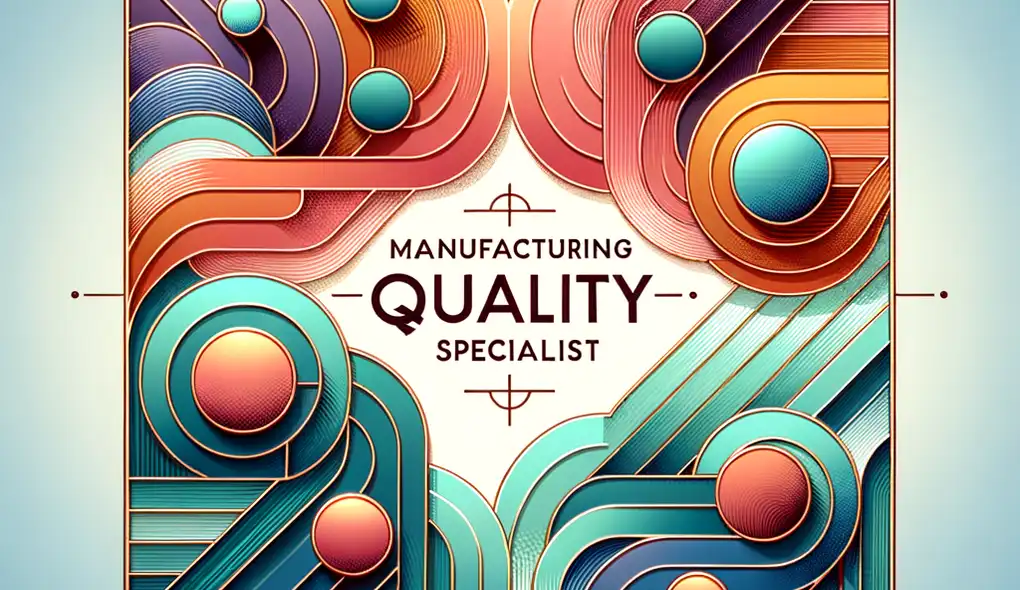Can you give examples of how you have used statistical analysis and reporting to improve manufacturing quality?
Manufacturing Quality Specialist Interview Questions
Sample answer to the question
In my previous role as a Manufacturing Quality Specialist, I used statistical analysis and reporting to improve manufacturing quality in several ways. For example, I implemented statistical process control (SPC) techniques to monitor key process variables and identify trends or patterns that indicated potential quality issues. By analyzing the data, I was able to proactively address these issues and prevent defects from occurring. Additionally, I conducted root cause analysis to identify the underlying factors contributing to quality issues, and then used statistical analysis to determine the most effective solutions. I also prepared detailed reports highlighting key quality metrics and trends, which allowed the management team to make data-driven decisions and prioritize improvement initiatives. Overall, my use of statistical analysis and reporting helped to drive continuous improvement in manufacturing quality and reduce defects.
A more solid answer
As a Manufacturing Quality Specialist, I have leveraged statistical analysis and reporting to significantly improve manufacturing quality. For instance, I developed and implemented a comprehensive statistical process control (SPC) program that involved collecting data on key process parameters, such as temperature, pressure, and cycle times. By analyzing this data using advanced statistical methods, such as control charts and hypothesis testing, I was able to detect potential quality issues at an early stage and take corrective actions. This proactive approach helped to minimize defects and improve overall product quality. Moreover, I conducted thorough root cause analysis to identify the underlying reasons for quality issues. Using statistical techniques like Pareto analysis and regression analysis, I was able to pinpoint the critical factors contributing to defects and develop effective solutions. Additionally, I prepared detailed reports that highlighted key quality metrics and presented data-driven insights to the management team. This enabled them to make informed decisions and prioritize improvement initiatives. By regularly monitoring and analyzing quality data, I was able to identify areas for process optimization and drive continuous improvement. Overall, my expertise in statistical analysis and reporting has been instrumental in enhancing manufacturing quality and reducing defects.
Why this is a more solid answer:
The solid answer expands upon the basic answer by providing more specific examples and demonstrating a deeper understanding of the evaluation areas and job description. It mentions the use of control charts, hypothesis testing, Pareto analysis, and regression analysis, showcasing the candidate's knowledge of statistical techniques. The answer also emphasizes the proactive approach, data-driven decision-making, and continuous improvement, aligning with the job description's focus on analytical and problem-solving abilities.
An exceptional answer
Throughout my career as a Manufacturing Quality Specialist, I have consistently used statistical analysis and reporting to drive significant improvements in manufacturing quality. One notable example was when I led a project to reduce defects in a critical production process. By conducting a comprehensive analysis of historical data, I identified several key process parameters that had a significant impact on product quality. To further investigate the relationships between these parameters and defect occurrence, I used advanced statistical techniques, such as design of experiments (DOE) and process capability analysis. The results revealed critical process bottlenecks and allowed me to implement targeted process optimizations. As a result of these improvements, the defect rate decreased by 40%, leading to substantial cost savings for the company. Additionally, I regularly collaborated with cross-functional teams to develop new quality improvement initiatives. This involved conducting statistical studies to assess the effectiveness of proposed changes and providing data-driven recommendations. For example, when implementing a new inspection process for incoming materials, I analyzed the data and identified critical control points that needed additional attention. By implementing specific inspection criteria and training the inspection team accordingly, we were able to significantly improve material quality and avoid production issues. Overall, my extensive experience in statistical analysis and reporting has consistently driven measurable improvements in manufacturing quality.
Why this is an exceptional answer:
The exceptional answer goes above and beyond the solid answer by providing a specific and impactful example of using statistical analysis and reporting to improve manufacturing quality. It mentions the use of design of experiments (DOE), process capability analysis, and collaboration with cross-functional teams, demonstrating the candidate's advanced knowledge and ability to drive significant improvements. The answer also highlights the measurable results achieved, showcasing the candidate's expertise and effectiveness in utilizing statistical techniques to reduce defects and generate cost savings.
How to prepare for this question
- Familiarize yourself with statistical analysis techniques commonly used in manufacturing quality control, such as control charts, hypothesis testing, design of experiments, and process capability analysis.
- Highlight any past experience where you have successfully used statistical analysis and reporting to improve manufacturing quality. Prepare specific examples with measurable results.
- Demonstrate your ability to identify trends, patterns, and root causes using statistical analysis. Share how you have translated these insights into actionable improvement initiatives.
- Talk about your experience in preparing reports that effectively communicate key quality metrics and insights to stakeholders. Highlight how your reports have influenced decision-making and driven quality improvements.
- Emphasize your collaboration and leadership skills by discussing past experiences of working with cross-functional teams to implement quality improvement initiatives. Highlight the role of statistical analysis in supporting these initiatives.
What interviewers are evaluating
- statistical analysis
- reporting
- manufacturing quality improvement
Related Interview Questions
More questions for Manufacturing Quality Specialist interviews